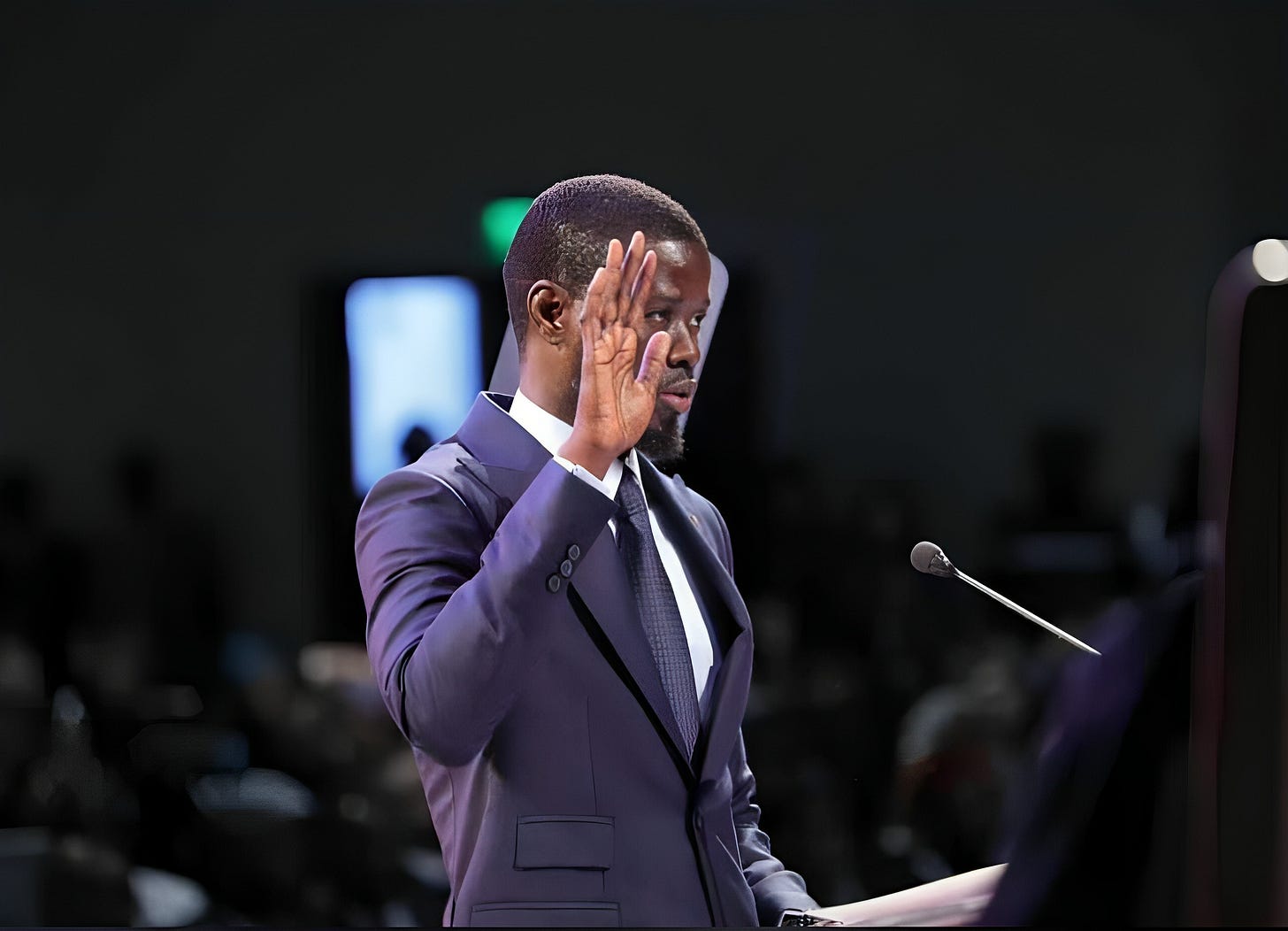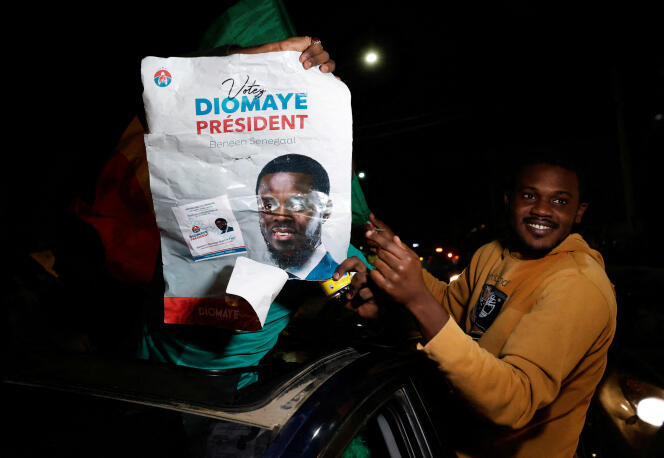Bassirou Diomaye Faye: From The Penitentiary to The Palace
As Faye embarks on his presidency, he faces significant challenges, but also holds the potential to shape a new era in Senegal's history.
“I’m aware that the results from the ballot express a deep desire for systemic change. Through my election, the Senegalese people have engaged in the construction of a just Senegal, a prosperous Senegal.”
These are the words of Bassirou Diomaye Faye, a former tax inspector and political newcomer, who has been inaugurated as the new president of Senegal.
His words were articulated with a noted meekness—with none of the triomphant tone often associated with presidential winners. Humility for some, anxiety for others.
At any rate, Faye's rise to power comes after a turbulent period marked by social and political unrest under the previous administration of Macky Sall.
Faye's journey from a little-known figure to the country's leader has been swift and unexpected.
Here, we take a close look at Faye's background, the circumstances that led to his presidency, and the hopes and challenges that lie ahead for him and the Senegalese people.
Thank you for reading The African Gazette. This post is public so feel free to share it and support our work.
Unconventional
Bassirou Diomaye Faye's ascent to the presidency is unconventional by traditional political standards. He had never held public office and even lost a mayoral race in his native town just two years ago.
Faye gained prominence as a close associate of Ousmane Sonko, a former tax inspector and opposition leader who faced legal troubles and was barred from running in the presidential election.
Faye's imprisonment, along with Sonko's, further fueled public anger and resentment towards the government, paving the way for his unexpected rise.
Wave of Support
“Faye has vowed to tackle corruption, promote economic growth, and prioritise the well-being of the Senegalese people.”
Faye's popularity grew as he became a symbol of resistance against perceived injustice and corruption within the country's political elite.
He and Sonko drew support from disaffected civil servants and ordinary citizens who felt marginalised and powerless.
His promises of sweeping change, including renegotiating oil and gas contracts, redefining Senegal's relationship with France, and prioritising the interests of the Senegalese people, struck a chord with many voters.
His campaign, funded largely by the Senegalese diaspora, garnered significant momentum and culminated in a landslide victory with 54 percent of the votes. Now, he is up against the toll order of delivering on his pledges
Pressing Demands
As Senegal's youngest leader at 44, Bassirou Diomaye Faye faces high expectations and daunting challenges.
His presidency comes at a time when the country is grappling with the aftermath of social unrest, economic difficulties exacerbated by the COVID-19 pandemic, and a need for political and social reforms.
Faye has vowed to tackle corruption, promote economic growth, and prioritise the well-being of the Senegalese people.
However, he must navigate the complexities of entrenched interests, manage diverse factions within the country, and deliver on his promises while balancing competing demands.
The balancing act will extend down to his own inner cirle as questions are being asked about the role of Ousmane Sonko, going forwards.
While he owes much of his political rise to his association with Sonko, the future of their relationship remains uncertain.
Sonko, a prominent opposition figure, played a crucial role in endorsing Faye as his replacement after being barred from running in the election due to criminal convictions.
It remains to be seen how Sonko will influence the new administration and whether their alliance will endure or evolve over time.
Crucial Years
Bassirou Diomaye Faye's presidency represents a dramatic shift in Senegal's political landscape.
From being a political prisoner just weeks before his inauguration, Faye now assumes the highest office in the country.
His unexpected rise to power reflects the deep desire for change among the Senegalese people and their yearning for a leader who will prioritise their welfare and address long-standing issues of corruption and socio-economic disparities.
As Faye embarks on his presidency, he faces significant challenges, but also holds the potential to shape a new era in Senegal's history.
The coming years will be crucial in determining his ability to deliver on his promises and bring about the systemic changes that the Senegalese people have long awaited.





